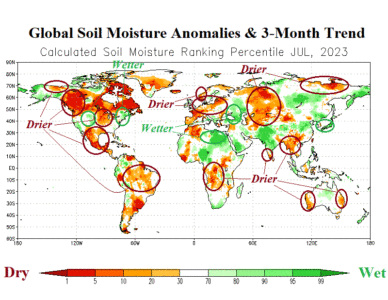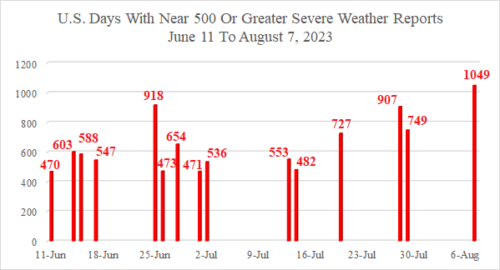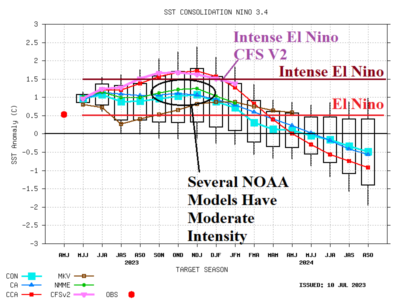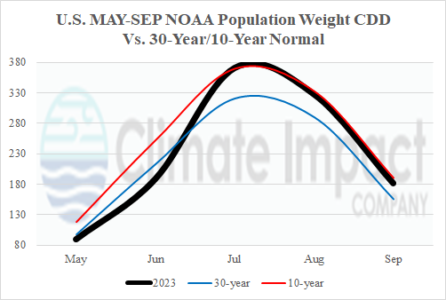08/09/2023, 8:17 am EDT
Regions of drier change during the past 3 months outnumber the wetter change by 14-4. One possible explanation is the increased mid-atmospheric high pressure related to large regions of anomalous warm SSTA and causing dry climate.
![Climate-Impact-Company-logo-sm[1]](https://climateimpactcompany.com/wp-content/uploads/2023/08/Climate-Impact-Company-logo-sm1.png)



